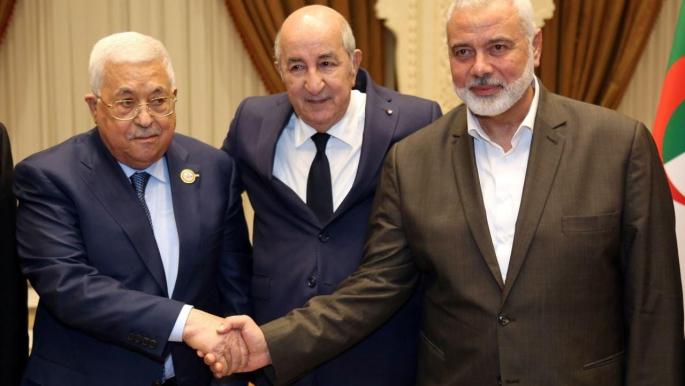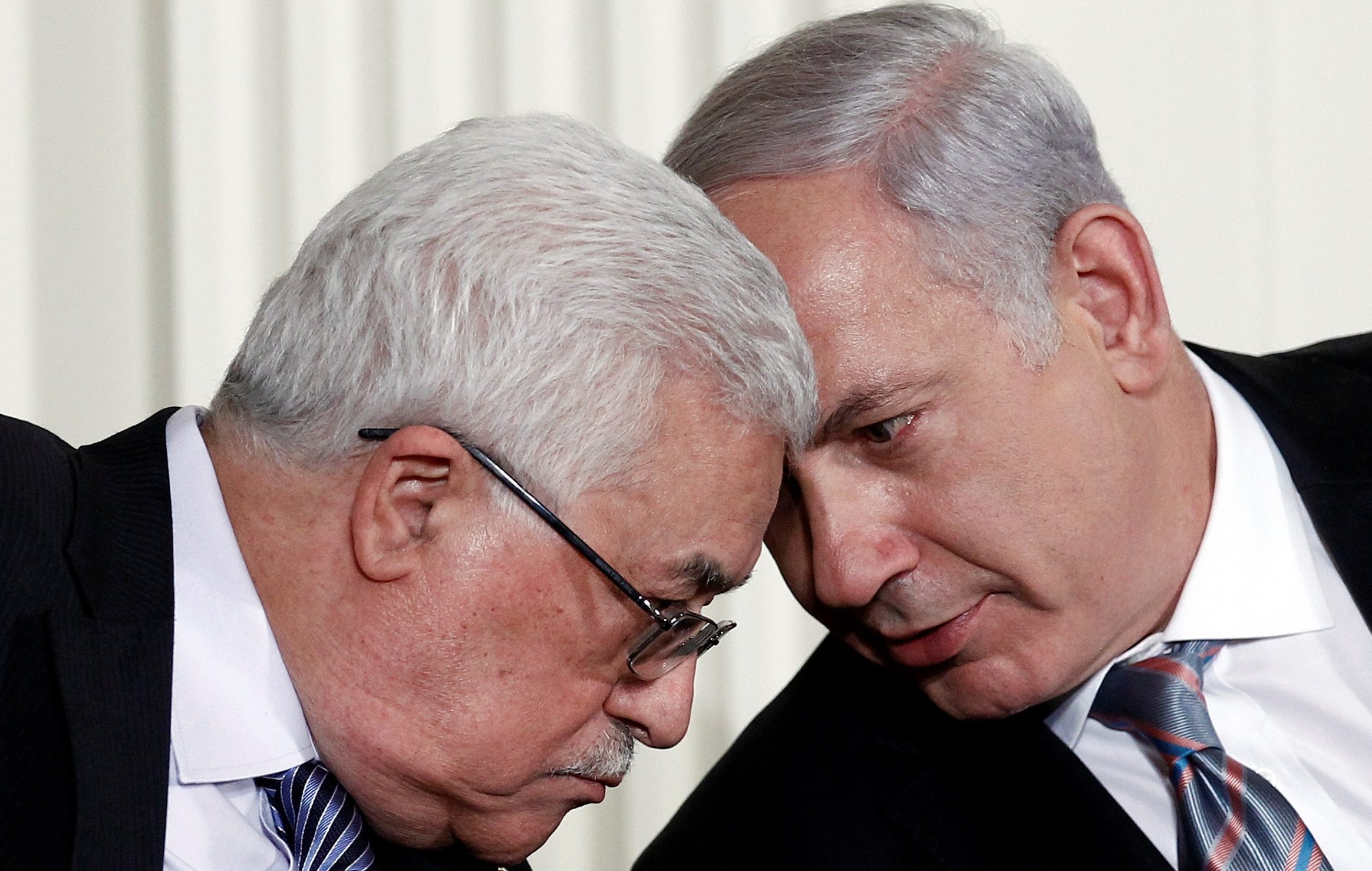Publications
INSS Insight No. 1663, November 29, 2022
The results of the Knesset elections did not surprise the Palestinians, who have followed the changes in Israeli society over the last decade or more vis-à-vis the Palestinian issue, and especially the rising support for parties opposed to a political resolution. In this context, they increasingly question the benefit of continued reliance on the process created with the Oslo Accords. Herein, however, lies the trap: the establishment of the Palestinian Authority was an achievement worth maintaining, yet this achievement has not produced an independent Palestinian state. The PA is still viewed, in spite of the criticism toward it and its leader Mahmoud Abbas, as the most efficient means for a political and international struggle against the Israeli government, if the latter aggravates its policy regarding the Palestinians. The PA’s proposal, accepted by the UN, to request the legal opinion of the International Court of Justice regarding the status of the West Bank demonstrates this. At the same time, Palestinian resistance and protest at the local level are likely to resonate regionally and take on a dimension of mass popular protest, alongside increasing cooperation among rival parties. Accordingly, once Israel’s new government is formed, it should consider its actions carefully, determine priorities, and impart a message of calm to the Palestinians.
The results of the elections to Israel’s 25th Knesset did not surprise the Palestinians. As consistent observers of events in Israel, they identified the change unfolding over more than a decade in Israeli society regarding the Palestinian issue, and the ongoing rise in support for parties opposed to a political resolution. The results strengthened the assessments many Palestinians have formed over these years: Israel will never recognize the Palestinian people and their right to self-determination; Israel rejects the two-state solution and in the best case will agree to expanded Palestinian autonomy; Israel will continue to establish settlements in the West Bank and not evacuate outposts there; Israel’s central concern is security coordination and not a political resolution; elements in Israel seeking to forge relations on the basis of coexistence and peace have been dramatically weakened; and there is increasing danger that a national conflict will morph into a religious conflict.
Leaked reports from coalition negotiations in Israel, indicating that representatives of the Religious Zionism party are demanding control over the Civil Administration, revocation of the Disengagement Law, authorization of outpost settlements, and annexation of settlements, increasing internal Palestinian calls for reconciliation and national unity. These demands are perceived as an attempt to “Judaize the West Bank” and definitively eliminate the two-state idea, which – as the majority of Palestinians see it – most members of the new Israeli government oppose, and to remove the Palestinian Authority, which they view as an obstacle to the achievement of their goals.
However, it seems that the results of the elections in Israel and the fear that the new government will roll back previous political achievements of the Palestinians infuse the PA with new vigor – which proves its survival abilities, even in the face of delegitimization and unprecedented criticism of its policy and performance in the domestic arena. Even opposition representatives recognize that they will inevitably need to agree or cooperate with the PA. In light of the election results, Mahmoud Abbas began speaking in favor of national reconciliation, and Azzam al-Ahmad, the Fatah representative in reconciliation talks, met in Lebanon on November 13 with senior Hamas official Musa Abu Marzouk. The PA’s proposal, endorsed by the UN, to seek an advisory opinion from the International Court of Justice (ICJ) on whether Israeli control of West Bank territory constitutes de facto annexation was praised by Hamas. The FBI’s announcement that it was opening an investigation into the death of journalist Shireen Abu Akleh, and the decision by the UN Third Committee that the Palestinians have the right to self-determination, were credited to the PA.

In the Palestinian domestic discourse after the elections, there is growing preoccupation with the question of what benefit comes from continued pursuit of the political option as the primary framework for achieving Palestinian independence. There are increasing calls to disavow commitments made under the Oslo Accords and answer the popular call for national inter-organizational reconciliation. At the present time, the free, vocal discourse regarding possible scenarios and outcomes that may serve the Palestinian national interest will not translate into an implementable consensus. However, this discourse and the attempts to undermine the PA’s stability by Islamic opposition organizations and local armed groups in the West Bank stand out at a time when the PA appears particularly relevant for dealing effectively with political and international challenges that the new Israeli government poses for the Palestinians.
Examining three processes that the Palestinians have undergone over more than three decades may be instructive about how they are likely to respond to challenges the new Israeli government will pose for them.
- Acceptance of Israel’s existence in the region began to receive practical expression with the outbreak of the first intifada in late 1987, which in effect expressed recognition of the weakness of Palestinian power and willingness to live independently alongside Israel and not in its place. Twenty-nine years later, in 2017, Hamas also recognized the limits of its strength and accepted the principle of a Palestinian state within 1967 borders, but without recognition of Israel or intention of peace with it, and while demanding a consensus on this matter.
- Transition from revolutionary phase to institution building: Yasir Arafat, who preceded Abbas as chairman of the PA, continued the revolutionary spirit after the signing of the Oslo Accords and heavily damaged the potential advancement of any resolution with Israel. Abbas, as his deputy, staunchly opposed this policy. The election of Abbas in 2005 was highly transparent and based on his public presentation of his intended policy, including full commitment to the Oslo Accords and willingness to implement them as signed. During the Abbas era, thanks to Salam Fayyad in his seven years as Prime Minister and others, a Palestinian system was built based on more institutionalized and efficient foundations than those used by Arafat, who managed a non-hierarchical system that did not feature clear divisions of roles and authorities.
- Acceptance of international authority: The Oslo Accords are the most significant achievement for the Palestinians since they began their struggle against the Jewish presence in the region. This achievement is due in large part to the PLO’s decision to accept the rules of the game and international decisions they had previously rejected. Today Hamas also seeks, albeit with little success, to develop a network of international relationships, i.e., reflecting their awareness of this need. Preserving the Palestinian Authority is mainly important in order to maintain international backing. The PA, in spite of its ongoing weakness, is currently “the national home of the Palestinians.”
If the new Israeli government tries to return the Palestinian arena to the pre-Oslo reality, or to redefine its relations with the Palestinians in a manner that the latter perceive as self-government not aimed toward full independence, it will thus meet a Palestinian system unwilling to forfeit what it has already gained, or the hopes and aspirations that sustain the justification for the PA’s continued existence. The PA, as a national entity, is accepted by the large majority of the Palestinian public, and the need to maintain it enjoys almost full Palestinian consensus. The discord is over what policy the PA should implement and how it ought to operate. So far, the many claims that the PA is just a subcontractor carrying out Israeli policy have not substantially undermined its status. Hamas, in spite of its opposition to security coordination between the PA and Israel, is more aware today than in the past of the limits of armed violence. Hamas participation in elections, the pressure it has applied to hold elections, and repeated statements by its leaders to Abbas and other central Fatah figures that they cannot advance the Palestinian issue on their own and that only a consensual integration of Fatah and Hamas can have any effect, demonstrate their political maturation and their recognition of the limits that they previously disregarded.

Israel’s new government has not yet been formed, but its emerging contours are of concern to the Palestinians. Its policy vis-à-vis the Palestinians, to the extent that is harsher and more brutal regarding the conflict and the Palestinian population, is likely to encourage a dynamic of cooperation among different elements in the Palestinian arena. Because of the substantial gaps between those elements, it is difficult at this stage to speak about inter-organizational reconciliation, but the shared understanding that a real threat to the national dream was created is enough to create cooperation and put sumud, i.e., steadfastness – a common idea cited by all Palestinians as a central lesson of 1948 – as the connecting link among all factions and streams. The implication is “never again”: we will not be expelled again, we will not allow takeovers or conquest of our lands, and we still stand firm and resist.
The mass dimension of the struggle may find concrete expression and lead to significant ongoing media and international attention. The PA has already begun to work in this direction, and the establishment of the new government in Israel may speed up previously planned action. The international arena will be the focus of the Palestinian struggle against Israel, and this time the chances of gaining significant international success will be greater; it may even gain support from the US if the heads of the Religious Zionism party carry out their intentions. The struggle in the West Bank would then become more massive and demonstrative, and the possibility of inter-organizational Palestinian unity would be more realistic than in the past.
The new Israeli government would do well to clearly define its aims for its relations with the Palestinians, examine the elements of concern on the Palestinian side, and consider which of the aspirations of the incoming parties, expressed prior to the elections, can be carried out, what should be postponed, and what will be the cost of each step. Steps toward calm should be taken vis-à-vis the Palestinians, and dialogue can also assist in this matter. Development of the economy and infrastructure could also help, if it the government refrains from statements that will be perceived as definitively rejecting the idea of a political resolution.



